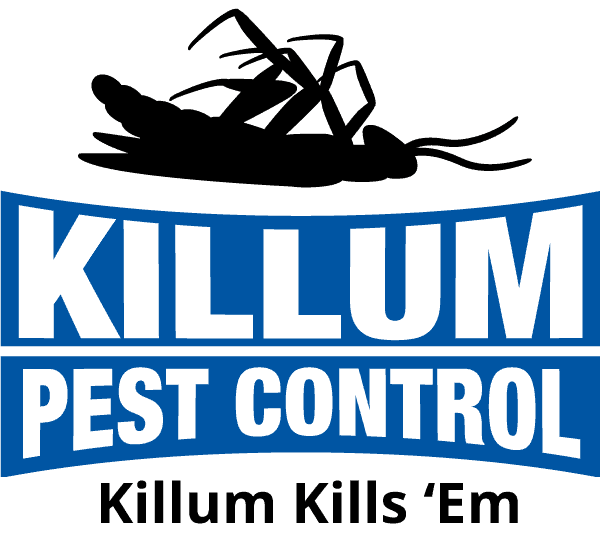As more people become aware of the impact their actions have on the environment, adopting eco-friendly practices has become increasingly popular. Pest control is no exception; many Texas homeowners are now seeking environmentally friendly solutions to protect their homes, loved ones, and the environment simultaneously. In this detailed guide, we will introduce you to various eco-friendly pest control methods designed specifically for Texas homeowners. These approaches emphasize prevention, natural remedies, and minimal chemical use, ensuring the safety of your family and the planet.
Learn how to create a pest-free sanctuary in harmony with nature and minimize the ecological footprint of your pest control efforts. Join us as we explore the different eco-friendly methods to combat pests while preserving and protecting the environment in Texas.
Prevention: The Foundation of Eco-Friendly Pest Control
The first step in any eco-friendly pest control strategy is establishing preventative measures to minimize the risk of infestations. Proactive measures can significantly decrease the need for further intervention, chemical or otherwise.
- Proper sanitation: Maintain cleanliness in your home, especially in areas where food is stored, prepared, or consumed. Regularly clean up crumbs and spills, and avoid leaving dirty dishes overnight.
- Sealing entry points: Inspect your home and fix any gaps, cracks, or holes that could serve as entry points for pests. Pay particular attention to areas around windows, doors, and utility service conduits.
- Yard maintenance: Regularly trim trees, bushes, and grass; remove leaf litter and debris to create an outdoor space that’s less appealing to pests.
Diatomaceous Earth: A Natural Pest Control Solution
Diatomaceous earth (DE) is an eco-friendly option for controlling various pests, such as ants, fleas, and bed bugs. DE, made from fossilized remains of diatoms, is a fine powder that kills pests by absorbing the protective oils from their exoskeletons, ultimately dehydrating them. While safe for humans and pets, it is highly effective against many insects.
To apply diatomaceous earth for pest control:
- Use food-grade DE: Be sure to select food-grade DE, as the non-food grade variety may contain harmful chemicals.
- Apply DE in strategic locations: Sprinkle a thin layer of DE in areas where pests are prevalent, such as around the house’s perimeter, under sinks, or along window sills.
- Change DE regularly: For DE to maintain effectiveness, replace it after rainfall or if the powder becomes too damp.
Biological Pest Control: Enlisting Nature’s Help
Biological pest control entails using natural predators, parasites, and pathogens to keep pest populations in check. By introducing these beneficial organisms into your environment, you can achieve effective pest management without resorting to harmful chemicals.
Examples of biological pest control solutions include the following:
- Ladybugs and lacewings: These insects are natural predators of aphids, mites, and other garden pests. Attract them to your yard by planting flowers they enjoy, such as dill, cilantro, or marigolds.
- Nematodes: Beneficial nematodes can control grubs, fleas, and other pests. Apply them to your yard following the manufacturer’s instructions.
- Bacillus thuringiensis (Bt): This naturally occurring bacterium can be used to control caterpillars and mosquito larvae. Apply products containing Bt as directed, targeting the specific pest populations you’ve identified in your yard.
Essential Oils: Natural Repellents for Various Pests
Essential oils derived from plants can act as natural repellents for several pests, including ants, spiders, and mosquitoes. Many essential oils have strong scents that deter pests without causing harm to humans or pets.
Some essential oils effective against pests include the following:
- Peppermint oil: Repels ants, spiders, and even mice. Mix a few drops of peppermint oil with water in a spray bottle and apply around potential entry points.
- Lavender oil: Deters mosquitoes, moths, and flies. Apply a few drops on fabric or cotton balls, and place them in areas where you want to repel pests.
- Lemon eucalyptus oil: This oil is a proven mosquito repellent and can be used in natural, homemade mosquito sprays.
Always exercise caution when using essential oils, especially around pets or people with sensitivities, and follow proper dilution recommendations.
Eco-Friendly Trapping Methods
Various trapping methods can effectively address pest issues without causing significant harm to the environment. These methods often preferentially target specific species, further reducing the ecological impact.
- Flypaper and sticky traps: For pests like flies or crawling insects, use non-toxic flypaper or sticky traps. Place these in areas where pests frequently gather, such as near windows or under cabinets.
- Live traps: Mice or other rodents can be humanely caught using live traps. These traps can then be released at a safe distance from your property, allowing the animals to continue living without causing damage to your home.
- Solar-powered traps: Reduce your carbon footprint even further by utilizing solar-powered traps for pests. Solar-powered mosquito traps, for instance, use light and carbon dioxide to attract mosquitoes before trapping them.
By adopting these eco-friendly pest control strategies, Texas homeowners can effectively protect their homes and families from pests while simultaneously minimizing their environmental impact. Employing a combination of preventative measures, natural remedies, and eco-conscious tactics ensures a healthier, more sustainable environment for all.
Embrace Eco-Friendly Pest Control with Killum Pest Control
Implementing eco-friendly pest control methods is a responsible choice for Texas homeowners who are dedicated to preserving the environment while keeping their homes safe from pests. By utilizing preventative measures, natural remedies, and alternative pest control techniques, you can create a sustainable, pest-free living space for you and your loved ones.
When faced with more complex pest control issues, you can trust the experts at Killum Pest Control. Our professionally trained team is equipped to handle your pest concerns while prioritizing environmentally friendly solutions wherever possible. Contact us today for expert residential pest control services!





